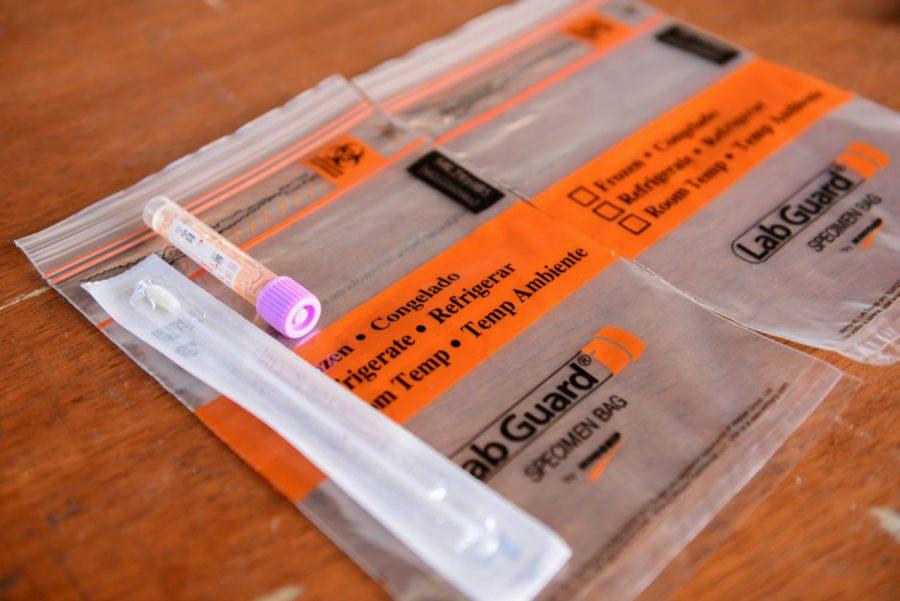Pitt adds 15 COVID-19 cases since Tuesday, opens new Nordenberg Hall vaccine clinic
April 23, 2021
Pitt added 15 new COVID-19 cases, composed of 13 students and two employees, between Tuesday and Thursday, with 42 students currently in isolation. The University’s previous case report, covering last Friday to Monday, included 13 cases.
This is the seventh case report since Pitt moved back to the middle Elevated Risk posture and enacted a shelter-in-place. These stricter measures followed a “consistent increase” in positive cases among students and the detection of the variant first found in the U.K., B.1.1.7, on campus. The shelter-in-place order will remain in effect until the COVID-19 Medical Response Office announces that it has been lifted, and said it’s “essential” for in-person commencement ceremonies which begin next week.
The CMRO said in a Friday evening email that although case counts are decreasing on campus, Allegheny County is continuing to report high numbers particularly among younger patients. It encouraged students to “not let down your guard or your mask.”
The Allegheny County Health Department and state health officials have continued to report high case numbers. According to hospital data compiled by The New York Times, about 84% of ICU beds in the Pittsburgh area are currently occupied, compared with 81% statewide and 71% nationally. UPMC Shadyside is at 95% capacity and has 11 ICU beds remaining.
The CMRO also announced that Pitt is opening a new vaccine clinic next week at the former AT&T storefront on Fifth Avenue in Nordenberg Hall. This clinic — which is replacing the one in the Petersen Events Center — will be able to provide about 100 people vaccines per week on a walk-in basis throughout the summer.
Pitt is offering no-questions-asked testing for any asymptomatic student who wants one at Posvar Hall via a partnership with Quest Diagnostics. Students can schedule an appointment on PittSwab Scheduler. Faculty and staff can order an at-home test through Quest. Pitt is also offering every student one at-home test through Quest prior to move-out.
The University has had 1,383 students and 245 employees test positive since June 26, with 1,341 students and 240 employees recovered thus far..
There are 42 students currently isolated at home or in Pitt’s isolation housing, which is reserved for those who have either a confirmed or suspected COVID-19 infection. Pitt has about 300 isolation beds.
The University is planning for on-campus, in-person instruction for the majority of classes as well as “the full range” of on-campus living and activities for the fall semester. Chancellor Patrick Gallagher said these plans depend on continued availability of the vaccine across the country, and that Pitt doesn’t anticipate a requirement that the incoming class have the COVID-19 vaccine.
Pitt implemented a systematic, random testing strategy, which involves testing several hundred students each week on Mondays and Wednesdays inside Posvar Hall. Pitt has since discontinued this surveillance testing and replaced it with walk-in, no-questions-asked testing at the same location.
The University also implemented a variety of new policies due to the pandemic during the spring semester, though some community members questioned whether the safeguards are sufficient. Students moved into dorms in four cohorts, beginning in late January and continuing into early February. Students needed a negative COVID-19 test before moving back on campus. Faculty and staff also have access to mail-in tests if they meet certain criteria.
Additionally, students are encouraged to shelter in place at least seven days before moving in. Once on campus, students are required to shelter in place again for at least 10 days or until the CMRO announces that it’s safe to move about campus. Students may attend classes during this time. Pitt also planned testing of students to monitor the virus’ spread, required students, faculty and staff to complete COVID-19 training and imposed strict penalties for violations of health guidelines.
Kenyon Bonner, the vice provost and dean of students, said student organizations who host a party or event can face suspension, and students hosting large parties can be suspended. Students living on campus who attend large parties can have their housing suspended for the semester, and students living off campus can be switched to persona non grata status, preventing them from entering University buildings or property.



